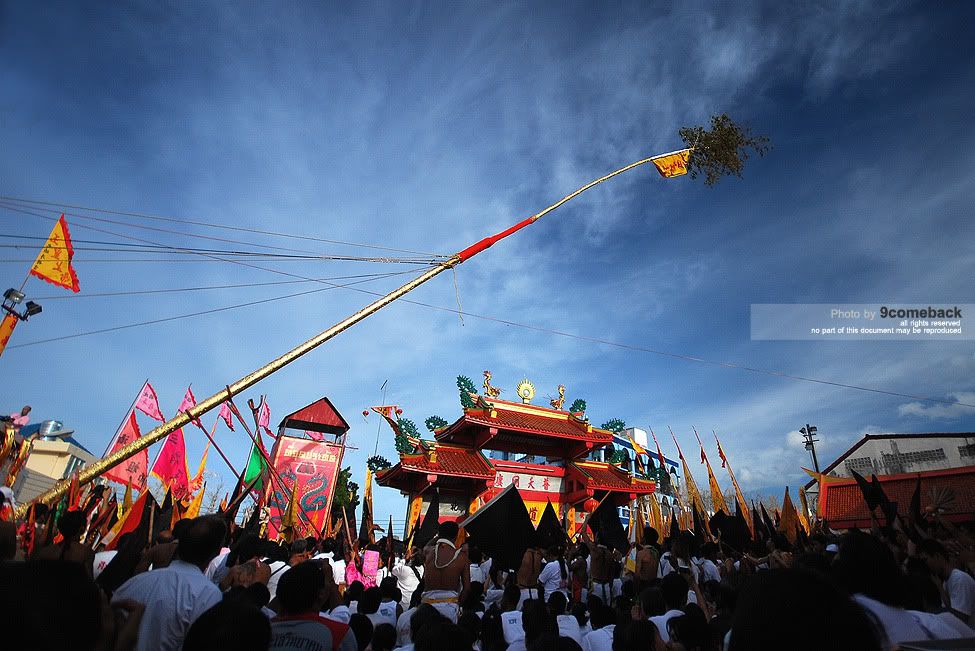Phuket's Vegetarian Festival
Each year,at this time, the area around Phuket’s Fresh Market becomes congested with food stalls and everywhere is festooned with red lanterns and Chinese dragons, all centred on the Jui Tui shrine.
 |
| Phuket's Vegetarian Festival |
One of the fascinating aspects of Phuket’s cultural traditions is the complex fusion of Chinese religious beliefs, with those of the original inhabitants of the island.
It all began in the early 1900s when tin ore was discovered in the Kathu area and hundreds of Hokkien Chinese were drafted in to do the mining. They either brought their families with them or intermarried with the locals. A thriving community blossomed, and in 1825 the Governor Praya Jerm moved the capital town from Ta Reua to Kathu.
The Chinese community had such critical mass that an itinerant Chinese opera company visited to entertain them. Here the story gets a little confused, but basically the whole area was struck by a major epidemic and almost everybody except the opera players became sick. Following their beliefs, the players had stuck to their religious calendar, which at this time of year required that they observe a strict vegetarian diet and offer prayers to two Chinese gods, Kiew Ong Tai and Yok Ong Sone Teh. The residents attributed their invulnerability to these religious observances.
An alternative explanation may be that since Kathu was a swampy jungle and it was the time of the monsoon rains, the visitors may have introduced a malarial strain, to which they themselves were immune, to the local mosquitoes which thrived in the damp conditions. When the rains stopped the insects’ breeding ponds disappeared and the epidemic abated naturally.
Be that as it may. The following year, the Haio Lan and Lian Tui regalia and sacred scripts were brought from China. When this precious cargo arrived at Bang Niao, the whole community went there to welcome the ship. The tradition of processions was thus born.
